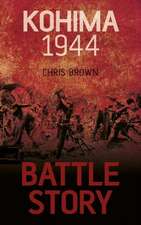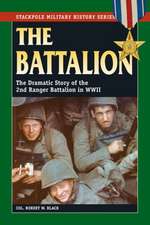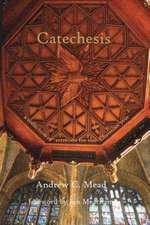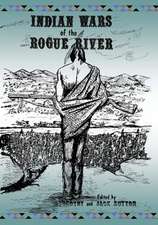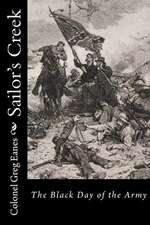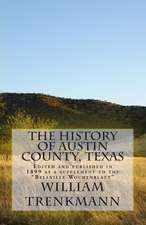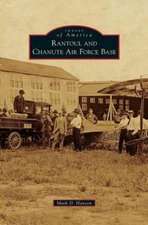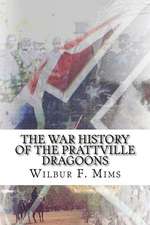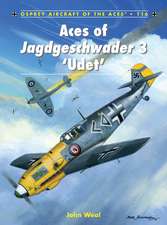Franklin and Winston: An Intimate Portrait of an Epic Friendship
Autor Jon Meacham Len Cariouen Limba Engleză CD-Audio – 30 sep 2003
Franklin Roosevelt and Winston Churchill were the greatest leaders of “the Greatest Generation.” In Franklin and Winston, Jon Meacham explores the fascinating relationship between the two men who piloted the free world to victory in World War II. It was a crucial friendship, and a unique one—a president and a prime minister spending enormous amounts of time together (113 days during the war) and exchanging nearly two thousand messages. Amid cocktails, cigarettes, and cigars, they met, often secretly, in places as far-flung as Washington, Hyde Park, Casablanca, and Teheran, talking to each other of war, politics, the burden of command, their health, their wives, and their children.
Born in the nineteenth century and molders of the twentieth and twenty-first, Roosevelt and Churchill had much in common. Sons of the elite, students of history, politicians of the first rank, they savored power. In their own time both men were underestimated, dismissed as arrogant, and faced skeptics and haters in their own nations—yet both magnificently rose to the central challenges of the twentieth century. Theirs was a kind of love story, with an emotional Churchill courting an elusive Roosevelt. The British prime minister, who rallied his nation in its darkest hour, standing alone against Adolf Hitler, was always somewhat insecure about his place in FDR’s affections—which was the way Roosevelt wanted it. A man of secrets, FDR liked to keep people off balance, including his wife, Eleanor, his White House aides—and Winston Churchill.
Confronting tyranny and terror, Roosevelt and Churchill built a victorious alliance amid cataclysmic events and occasionally conflicting interests. Franklin and Winston is also the story of their marriages and their families, two clans caught up in the most sweeping global conflict in history.
Meacham’s new sources—including unpublished letters of FDR’s great secret love, Lucy Mercer Rutherfurd, the papers of Pamela Churchill Harriman, and interviews with the few surviving people who were in FDR and Churchill’s joint company—shed fresh light on the characters of both men as he engagingly chronicles the hours in which they decided the course of the struggle.
Hitler brought them together; later in the war, they drifted apart, but even in the autumn of their alliance, the pull of affection was always there. Charting the personal drama behind the discussions of strategy and statecraft, Meacham has written the definitive account of the most remarkable friendship of the modern age.
From the Hardcover edition.
| Toate formatele și edițiile | Preț | Express |
|---|---|---|
| Paperback (1) | 123.73 lei 3-5 săpt. | |
| Random House Trade – 30 sep 2004 | 123.73 lei 3-5 săpt. | |
| Hardback (1) | 202.40 lei 3-5 săpt. | |
| Random House – 14 oct 2003 | 202.40 lei 3-5 săpt. |
Preț: 242.73 lei
Nou
Puncte Express: 364
Preț estimativ în valută:
46.45€ • 49.67$ • 38.73£
46.45€ • 49.67$ • 38.73£
Indisponibil temporar
Doresc să fiu notificat când acest titlu va fi disponibil:
Se trimite...
Preluare comenzi: 021 569.72.76
Specificații
ISBN-13: 9780739306772
ISBN-10: 0739306774
Dimensiuni: 118 x 153 x 51 mm
Greutate: 0.39 kg
Ediția:Prescurtată
Editura: Random House Audio Publishing Group
ISBN-10: 0739306774
Dimensiuni: 118 x 153 x 51 mm
Greutate: 0.39 kg
Ediția:Prescurtată
Editura: Random House Audio Publishing Group
Recenzii
“This is at once an important, insightful, and highly entertaining portrait of two men at the peak of their powers who, through their genius, common will, and uncommon friendship, saved the world. Jon Meacham’s Franklin and Winston takes its place in the front ranks of all that has been written about these two great men.“
—Tom Brokaw, author of The Greatest Generation
“Franklin and Winston is a sensitive, perceptive, and absorbing portrait of the friendship that saved the democratic world in the greatest war in history.”
—Arthur M. Schlesinger, Jr., author of The Age of Roosevelt
“Jon Meacham has done groundbreaking work by focusing on the World War II alliance between Franklin Roosevelt and Winston Churchill as a friendship. Using important new sources, he has brought us a shrewd, original, sensitive, and fascinating look at the many-layered relationship between these two towering human beings, as well as their friends, families, aides, and allies. The book reveals the emotional undercurrents that linked FDR and Churchill—and sometimes estranged them—and teases out which of the ties between them were heartfelt and which were based on raw mutual political need. Meacham triumphantly shows how lucky we are that Roosevelt and Churchill were in power together during some of the most threatening moments of the twentieth century.”
—Michael Beschloss, author of The Conquerors: Roosevelt, Truman and the Destruction of Hitler’s Germany, 1941–1945
“The relationship between FDR and Churchill was the most important political friendship of the twentieth century, not only determining the outcome of World War II but also setting a pattern that has endured ever since. Jon Meacham brings it to vivid life, shedding new insights into its strange and poignant complexity, and why its legacy has helped shape the modern world.”
—Richard Holbrooke, author of To End a War
“Jon Meacham enlivens the two men, their families, and their personal relations and relationships, providing a human context for the world-shaping leaders of the Anglo-American alliance during the Second World War.”
—Warren F. Kimball, author of Forged in War: Roosevelt, Churchill, and the Second World War
From the Hardcover edition.
—Tom Brokaw, author of The Greatest Generation
“Franklin and Winston is a sensitive, perceptive, and absorbing portrait of the friendship that saved the democratic world in the greatest war in history.”
—Arthur M. Schlesinger, Jr., author of The Age of Roosevelt
“Jon Meacham has done groundbreaking work by focusing on the World War II alliance between Franklin Roosevelt and Winston Churchill as a friendship. Using important new sources, he has brought us a shrewd, original, sensitive, and fascinating look at the many-layered relationship between these two towering human beings, as well as their friends, families, aides, and allies. The book reveals the emotional undercurrents that linked FDR and Churchill—and sometimes estranged them—and teases out which of the ties between them were heartfelt and which were based on raw mutual political need. Meacham triumphantly shows how lucky we are that Roosevelt and Churchill were in power together during some of the most threatening moments of the twentieth century.”
—Michael Beschloss, author of The Conquerors: Roosevelt, Truman and the Destruction of Hitler’s Germany, 1941–1945
“The relationship between FDR and Churchill was the most important political friendship of the twentieth century, not only determining the outcome of World War II but also setting a pattern that has endured ever since. Jon Meacham brings it to vivid life, shedding new insights into its strange and poignant complexity, and why its legacy has helped shape the modern world.”
—Richard Holbrooke, author of To End a War
“Jon Meacham enlivens the two men, their families, and their personal relations and relationships, providing a human context for the world-shaping leaders of the Anglo-American alliance during the Second World War.”
—Warren F. Kimball, author of Forged in War: Roosevelt, Churchill, and the Second World War
From the Hardcover edition.
Notă biografică
Jon Meacham is the managing editor of Newsweek. Born in Chattanooga in 1969, he is a graduate of The University of the South in Sewanee, Tennessee. The editor of Voices in Our Blood: America’s Best on the Civil Rights Movement, Meacham lives in New York City with his wife and son.
From the Hardcover edition.
From the Hardcover edition.
Extras
CHAPTER 1
TWO LIONS ROARING AT THE SAME TIME
A Disappointing Early Encounter- Their Lives Down the Years-The Coming of World War II
In the opening hours of a mission to wartime Europe in July 1918, Franklin Roosevelt, then thirty-six and working for the Navy Department, looked over a typewritten "Memorandum For Assistant Secretary" to discover what was in store for him in London. Reading the schedule's description of his evening engagement for Monday, July 29, Roosevelt learned that he was "to dine at a function given for the Allied Ministers Prosecuting the War." Hosted by F. E. Smith, a government minister and good friend of Winston Churchill's, the banquet was held in the hall of Gray's Inn in London. It was a clear evening-the wind was calm-and Roosevelt and Churchill, the forty-three-year-old former first lord of the Admiralty who was then minister of munitions, mingled among the guests below a portrait of Elizabeth I.
What were Roosevelt and Churchill like on this summer night? Frances Perkins knew them both in these early years. A progressive reformer, the first female member of a president's cabinet-Roosevelt would name her secretary of labor after he was elected in 1932-Perkins saw their strengths and their weaknesses. She first encountered Roosevelt in 1910 at a tea dance in Manhattan's Gramercy Park. Perkins was a graduate student at Columbia, already immersed in the world of social causes and settlement houses; Roosevelt was running for the state senate from Dutchess County. "There was nothing particularly interesting about the tall, thin young man with the high collar and pince-nez," Perkins recalled. They spoke briefly of Roosevelt's cousin Theodore, the former president of the United States, but Perkins did not give this Roosevelt "a second thought" until she ran across him again in Albany a few years later. She watched him work the Capitol-"tall and slender, very active and alert, moving around the floor, going in and out of committee rooms, rarely talking with the members, who more or less avoided him, not particularly charming (that came later), artificially serious of face, rarely smiling, with an unfortunate habit-so natural that he was unaware of it-of throwing his head up. This, combined with his pince-nez and great height, gave him the appearance of looking down his nose at most people." Later, the toss of the head would signal confidence and cheer. In the young Roosevelt it seemed, Perkins said, "slightly supercilious." She once heard a fellow politician say: "Awful arrogant fellow, that Roosevelt."
Perkins had also spent time with Churchill when she visited pre-World War I England. He was, she recalled, "a very interesting, alert, and vigorous individual who was an intellectual clearly." Churchill, she would tell President Roosevelt years later, "is this kind of a fellow: You want to be careful. He runs ahead of himself, or at least he used to." He was stubborn, Perkins said, "so sure of himself that he would insist upon doing the thing that he thought was a good thing to do. He was a little bit vain. He thought people were old fuddy-duds if they didn't agree with him." Her bottom line?
"He's pig-headed in his own way," Perkins said. "He's often right and brilliant, but . . ." But. She left the sentence unfinished.
The Gray's Inn dinner was a glittering occasion, with high British officials going out of their way to pay homage to Roosevelt as the representative of their American ally. Hailing Roosevelt as "the member of a glorious family," Smith, who later became the earl of Birkenhead, said, "No one will welcome Mr. Roosevelt on his visit to England with a warmer hand and heart than we do." Then Roosevelt-to his "horror," he said-was unexpectedly asked to say a few words. He stumbled a bit as he began. Uncertainly, trying to find the right note, Roosevelt said he had been "given to understand that I should not be called upon to speak" and in his nervousness, looking around at the faces of his hosts, began to talk about the importance of the personal in politics and war. Citing the need for an "intimate personal relationship" among allied nations, Roosevelt said: "It is quite impossible . . . to sit at home 3000 miles or more away and to obtain that close man-to-man, shoulder-to-shoulder touch, which today characterizes the work of the Allies in conducting the War." Warming to his point, Roosevelt concluded: "We are with you-about ninety-nine and nine-tenths of 110,000,000 of our people are with you-in the declaration that we are going to see this thing through with you."
In later years, Churchill would not recall meeting the American visitor. Roosevelt certainly recalled meeting Churchill, however, and long remembered Churchill's brusqueness. "I always disliked him since the time I went to England in 1917 or 1918," Roosevelt said to Joseph P. Kennedy, the American ambassador to Britain, in a conversation in 1939. "At a dinner I attended he acted like a stinker." Roosevelt and Churchill would not be in contact again for another twenty-one years. When they were, Churchill, not Roosevelt, would be the one sounding the trumpet about the indispensability of an "intimate personal relationship." The man who would bring them together: Adolf Hitler, a corporal who won the Iron Cross, First Class, six days after Roosevelt and Churchill dined at Gray's Inn.
they had been born eight years and an ocean apart-Winston Leonard Spencer Churchill on November 30, 1874, at Blenheim Palace in Oxfordshire; Franklin Delano Roosevelt on January 30, 1882, at Hyde Park in Dutchess County, New York. They loved tobacco, strong drink, history, the sea, battleships, hymns, pageantry, patriotic poetry, high office, and hearing themselves talk. "Being with them was like sitting between two lions roaring at the same time," said Mary Soames. With Roosevelt in his naval cape and Churchill in his service uniforms, they understood the stagecraft of statesmanship. "There was a good deal of the actor in each," said Mike Reilly, Roosevelt's Secret Service chief, "and we Secret Service men who had to arrange their exits and their entrances found we were working for a pair of master showmen who were determined that no scenes would be stolen by the other."
They were the sons of rich American mothers. Jennie Jerome married Lord Randolph Churchill in 1874; Sara Delano became the second wife of James Roosevelt in 1880. Roosevelt, the cousin of a president, came from the Hudson Valley, Groton School, Harvard College, and Columbia Law School; Churchill, the grandson of a duke, from Blenheim, Harrow, and Sandhurst. In a sign of how small the elite Anglo-American world in which they moved was, one of the wives of Winston's cousin the duke of Marlborough was romanced by Winthrop Rutherfurd, the husband of Franklin's illicit love, Lucy Mercer Rutherfurd. As boys, Roosevelt and Churchill were obsessive collectors: stamps, birds, books, and naval prints for Roosevelt, toy soldiers and butterflies for Churchill. Cousin Theodore's legend fired young Roosevelt's political imagination; Lord Randolph's career fascinated his son. As children and young men, they read the same books: Edward Lear's Book of Nonsense, the naval writings of Admiral Thayer Mahan, G. A. Henty's boys' books about the glories of empire, Kipling's poems and fiction, and Macaulay's history and essays. They loved Shakespeare, the Sermon on the Mount, and movies-even bad ones.
Politics was a shared passion. "My husband always had a joy in the game of politics," Eleanor said. "It was always to him an interesting game, like chess-something in which you pitted your wits against somebody else's." Until he became president, Roosevelt was a state senator, assistant secretary of the navy, the 1920 Democratic nominee for vice president, and governor of New York-and his four White House victories are unmatched in American history. Churchill was the quintessential parliamentarian. "Westminster is his ambience-his aura, as a spiritualist would say," wrote Colin Coote, managing editor of the Daily Telegraph. From his first election to the House of Commons in October 1900 to his summons by King George VI to become prime
minister in May 1940, Churchill would serve as parliamentary undersecretary for the Colonies, president of the Board of Trade, home secretary, first lord of the Admiralty, chancellor of the duchy of Lancaster, minister of munitions, secretary of state for war and air, secretary of state for the Colonies, and chancellor of the Exchequer. He was always looking ahead. At the Munitions Ministry in September 1917, Churchill said: "There are only two ways left now of winning the war, and they both begin with A. One is aeroplanes and the other is America."
Their minds raced and roamed. Roosevelt loved what he called "bold, persistent experimentation" in politics and government and liked to lecture Middle Eastern leaders-from the shah of Iran to Ibn Saud of Saudi Arabia-on how they might grow trees and crops in the desert. In 1918, Felix Frankfurter was visiting Cliveden, Nancy Astor's country house in England, and listened as she attacked Churchill, who was not there, at length. At last A. J. Balfour, a former prime minister, told her: "Nancy, all you say about Winston may be true, but Winston has ideas, and to a statesman with ideas much shall be forgiven."
Ceremony fascinated them. At the height of World War II, when they were in Washington, Roosevelt and Churchill took time to confer about the music that would be played at a White House concert. With Roosevelt's approval, Churchill proposed "some . . . early American airs and suggests that the list include some of Stephen Foster's-Old Kentucky Home, and others-popular Civil War airs, and winding up with the Battle Hymn of the Republic." Roosevelt's intimates belonged to an exclusive Cuff Links Club, whose founding members had been part of Roosevelt's failed vice presidential campaign; Churchill's inner circle dined together in the Pinafore Room of the Savoy as members of the Other Club, established by Churchill and F. E. Smith in 1911. Roosevelt and Churchill were fascinated by the drama of war. Roosevelt "really had military genius, and there's where he and Churchill came closest together," said the columnist Walter Lippmann. "What they loved was the war room-the maps, deployment, deciding on where to land."
In their hearts, though, they were men of peace. To them war was a necessary evil. "I have seen war," Roosevelt once said, his remarks based on his memories of the 1918 trip to Europe. "I have seen war on land and sea. I have seen blood running from the wounded. I have seen men coughing out their gassed lungs. I have seen the dead in the mud. I have seen cities destroyed. I have seen two hundred limping, exhausted men come out of line-the survivors of a regiment of one thousand that went forward forty-eight hours before. I have seen children starving. I have seen the agony of mothers and wives. I hate war." After the bloodshed of the western front, Churchill took the same view. "War, which used to be cruel and magnificent, has now become cruel and squalid," Churchill wrote in 1930. "Instead of a small number of well-trained professionals championing their country's cause with ancient weapons and a beautiful intricacy of archaic manoeuvre, sustained at every moment by the applause of their nation, we now have entire populations, including even women and children, pitted against one another in brutish mutual extermination, and only a set of bleary-eyed clerks left to add up the butcher's bill."
Roosevelt and Churchill were courageous and cool under fire. In February 1933, in Miami, an assassin armed with a revolver fired five shots at Roosevelt, missing the president-elect but killing the mayor of Chicago, who was sitting next to FDR in a car. Roosevelt never flinched. That evening, the president-elect appeared unshaken and went to bed after drinking a glass of whiskey. Facing a ferocious storm on an Atlantic cruise in 1935-a sailor on board thought the tempest looked "as if all the devils of hell were breaking loose"-Roosevelt was unruffled. "He was interested but not in the least alarmed," said Admiral Wilson Brown, a Roosevelt naval aide.
At Omdurman, Churchill rode in a fabled cavalry charge, brandishing a Mauser pistol; went to the front as a battalion commander in the trenches in World War I; refused to leave London during the Blitz; preferred rooftops to bomb shelters during air raids; and had to be forbidden by George VI to strike the beaches of Normandy on D-Day. En route to Washington aboard the Queen Mary for a meeting with Roosevelt in 1943, Churchill waved away reports of German submarines, saying that he had had a machine gun mounted in his lifeboat. "I won't be captured," he said. "The finest way to die is in the excitement of fighting the enemy."
They were deeply driven. Seated next to Violet Bonham Carter, daughter of Prime Minister H. H. Asquith, at dinner when he was thirty-three, Churchill said, "We are all worms. But I do believe that I am a glow-worm." On his first American lecture tour in 1900, Churchill was introduced to a Boston audience by an American novelist named Winston Churchill (no relation). "Why don't you run for the Presidency of the United States?" the British Churchill asked the American Churchill. "Then I will become Prime Minister of England, and we can amaze everybody." Careening from hot spot to hot spot in the empire at the turn of the century, Churchill was aware of the impression his stark ambition made on others. Some of his critics, he wrote in a memoir, "proceeded to be actually abusive, and the expressions 'Medal-hunter' and 'Self-advertiser' were used from time to time in some high and some low military circles in a manner which would, I am sure, surprise and pain the readers of these notes."
Roosevelt was stoked by ambition, too. By the end of his college years at Harvard, Roosevelt seems to have grasped what it would take to get what he wanted in life: a relentless drive. In an editorial addressed to the incoming freshman class at Harvard in 1903, Roosevelt, then president of the Crimson, wrote: "It is not so much brilliance as effort that is appreciated here-determination to accomplish something."
The young Roosevelt was openly ambitious and privately anxious, and the war between these impulses came to the surface when he slept. "Sometimes he'd have nightmares and then he'd generally do very strange things," recalled Eleanor. "He was a collector of books and so one night I woke up to see him standing at the foot of the bed reaching for something. I said, 'What on earth are you doing?' and he said, 'I can't reach that book, and if I don't get it now I may miss getting it!' " Substitute any of life's great consolations for the book-love, office, fame-and we have a glimpse of the turmoil Roosevelt kept hidden from public view.
In their youth and early adult years, Churchill and Roosevelt could be unpopular with their contemporaries. As a young member of Parliament, Churchill was often isolated. "His parents' friends found him an interesting phenomenon; men of his own age thought him brash, offensive and arrogant," said Jock Colville. Roosevelt was blackballed from Porcellian, his father's and his uncle's Harvard club.
From the Hardcover edition.
TWO LIONS ROARING AT THE SAME TIME
A Disappointing Early Encounter- Their Lives Down the Years-The Coming of World War II
In the opening hours of a mission to wartime Europe in July 1918, Franklin Roosevelt, then thirty-six and working for the Navy Department, looked over a typewritten "Memorandum For Assistant Secretary" to discover what was in store for him in London. Reading the schedule's description of his evening engagement for Monday, July 29, Roosevelt learned that he was "to dine at a function given for the Allied Ministers Prosecuting the War." Hosted by F. E. Smith, a government minister and good friend of Winston Churchill's, the banquet was held in the hall of Gray's Inn in London. It was a clear evening-the wind was calm-and Roosevelt and Churchill, the forty-three-year-old former first lord of the Admiralty who was then minister of munitions, mingled among the guests below a portrait of Elizabeth I.
What were Roosevelt and Churchill like on this summer night? Frances Perkins knew them both in these early years. A progressive reformer, the first female member of a president's cabinet-Roosevelt would name her secretary of labor after he was elected in 1932-Perkins saw their strengths and their weaknesses. She first encountered Roosevelt in 1910 at a tea dance in Manhattan's Gramercy Park. Perkins was a graduate student at Columbia, already immersed in the world of social causes and settlement houses; Roosevelt was running for the state senate from Dutchess County. "There was nothing particularly interesting about the tall, thin young man with the high collar and pince-nez," Perkins recalled. They spoke briefly of Roosevelt's cousin Theodore, the former president of the United States, but Perkins did not give this Roosevelt "a second thought" until she ran across him again in Albany a few years later. She watched him work the Capitol-"tall and slender, very active and alert, moving around the floor, going in and out of committee rooms, rarely talking with the members, who more or less avoided him, not particularly charming (that came later), artificially serious of face, rarely smiling, with an unfortunate habit-so natural that he was unaware of it-of throwing his head up. This, combined with his pince-nez and great height, gave him the appearance of looking down his nose at most people." Later, the toss of the head would signal confidence and cheer. In the young Roosevelt it seemed, Perkins said, "slightly supercilious." She once heard a fellow politician say: "Awful arrogant fellow, that Roosevelt."
Perkins had also spent time with Churchill when she visited pre-World War I England. He was, she recalled, "a very interesting, alert, and vigorous individual who was an intellectual clearly." Churchill, she would tell President Roosevelt years later, "is this kind of a fellow: You want to be careful. He runs ahead of himself, or at least he used to." He was stubborn, Perkins said, "so sure of himself that he would insist upon doing the thing that he thought was a good thing to do. He was a little bit vain. He thought people were old fuddy-duds if they didn't agree with him." Her bottom line?
"He's pig-headed in his own way," Perkins said. "He's often right and brilliant, but . . ." But. She left the sentence unfinished.
The Gray's Inn dinner was a glittering occasion, with high British officials going out of their way to pay homage to Roosevelt as the representative of their American ally. Hailing Roosevelt as "the member of a glorious family," Smith, who later became the earl of Birkenhead, said, "No one will welcome Mr. Roosevelt on his visit to England with a warmer hand and heart than we do." Then Roosevelt-to his "horror," he said-was unexpectedly asked to say a few words. He stumbled a bit as he began. Uncertainly, trying to find the right note, Roosevelt said he had been "given to understand that I should not be called upon to speak" and in his nervousness, looking around at the faces of his hosts, began to talk about the importance of the personal in politics and war. Citing the need for an "intimate personal relationship" among allied nations, Roosevelt said: "It is quite impossible . . . to sit at home 3000 miles or more away and to obtain that close man-to-man, shoulder-to-shoulder touch, which today characterizes the work of the Allies in conducting the War." Warming to his point, Roosevelt concluded: "We are with you-about ninety-nine and nine-tenths of 110,000,000 of our people are with you-in the declaration that we are going to see this thing through with you."
In later years, Churchill would not recall meeting the American visitor. Roosevelt certainly recalled meeting Churchill, however, and long remembered Churchill's brusqueness. "I always disliked him since the time I went to England in 1917 or 1918," Roosevelt said to Joseph P. Kennedy, the American ambassador to Britain, in a conversation in 1939. "At a dinner I attended he acted like a stinker." Roosevelt and Churchill would not be in contact again for another twenty-one years. When they were, Churchill, not Roosevelt, would be the one sounding the trumpet about the indispensability of an "intimate personal relationship." The man who would bring them together: Adolf Hitler, a corporal who won the Iron Cross, First Class, six days after Roosevelt and Churchill dined at Gray's Inn.
they had been born eight years and an ocean apart-Winston Leonard Spencer Churchill on November 30, 1874, at Blenheim Palace in Oxfordshire; Franklin Delano Roosevelt on January 30, 1882, at Hyde Park in Dutchess County, New York. They loved tobacco, strong drink, history, the sea, battleships, hymns, pageantry, patriotic poetry, high office, and hearing themselves talk. "Being with them was like sitting between two lions roaring at the same time," said Mary Soames. With Roosevelt in his naval cape and Churchill in his service uniforms, they understood the stagecraft of statesmanship. "There was a good deal of the actor in each," said Mike Reilly, Roosevelt's Secret Service chief, "and we Secret Service men who had to arrange their exits and their entrances found we were working for a pair of master showmen who were determined that no scenes would be stolen by the other."
They were the sons of rich American mothers. Jennie Jerome married Lord Randolph Churchill in 1874; Sara Delano became the second wife of James Roosevelt in 1880. Roosevelt, the cousin of a president, came from the Hudson Valley, Groton School, Harvard College, and Columbia Law School; Churchill, the grandson of a duke, from Blenheim, Harrow, and Sandhurst. In a sign of how small the elite Anglo-American world in which they moved was, one of the wives of Winston's cousin the duke of Marlborough was romanced by Winthrop Rutherfurd, the husband of Franklin's illicit love, Lucy Mercer Rutherfurd. As boys, Roosevelt and Churchill were obsessive collectors: stamps, birds, books, and naval prints for Roosevelt, toy soldiers and butterflies for Churchill. Cousin Theodore's legend fired young Roosevelt's political imagination; Lord Randolph's career fascinated his son. As children and young men, they read the same books: Edward Lear's Book of Nonsense, the naval writings of Admiral Thayer Mahan, G. A. Henty's boys' books about the glories of empire, Kipling's poems and fiction, and Macaulay's history and essays. They loved Shakespeare, the Sermon on the Mount, and movies-even bad ones.
Politics was a shared passion. "My husband always had a joy in the game of politics," Eleanor said. "It was always to him an interesting game, like chess-something in which you pitted your wits against somebody else's." Until he became president, Roosevelt was a state senator, assistant secretary of the navy, the 1920 Democratic nominee for vice president, and governor of New York-and his four White House victories are unmatched in American history. Churchill was the quintessential parliamentarian. "Westminster is his ambience-his aura, as a spiritualist would say," wrote Colin Coote, managing editor of the Daily Telegraph. From his first election to the House of Commons in October 1900 to his summons by King George VI to become prime
minister in May 1940, Churchill would serve as parliamentary undersecretary for the Colonies, president of the Board of Trade, home secretary, first lord of the Admiralty, chancellor of the duchy of Lancaster, minister of munitions, secretary of state for war and air, secretary of state for the Colonies, and chancellor of the Exchequer. He was always looking ahead. At the Munitions Ministry in September 1917, Churchill said: "There are only two ways left now of winning the war, and they both begin with A. One is aeroplanes and the other is America."
Their minds raced and roamed. Roosevelt loved what he called "bold, persistent experimentation" in politics and government and liked to lecture Middle Eastern leaders-from the shah of Iran to Ibn Saud of Saudi Arabia-on how they might grow trees and crops in the desert. In 1918, Felix Frankfurter was visiting Cliveden, Nancy Astor's country house in England, and listened as she attacked Churchill, who was not there, at length. At last A. J. Balfour, a former prime minister, told her: "Nancy, all you say about Winston may be true, but Winston has ideas, and to a statesman with ideas much shall be forgiven."
Ceremony fascinated them. At the height of World War II, when they were in Washington, Roosevelt and Churchill took time to confer about the music that would be played at a White House concert. With Roosevelt's approval, Churchill proposed "some . . . early American airs and suggests that the list include some of Stephen Foster's-Old Kentucky Home, and others-popular Civil War airs, and winding up with the Battle Hymn of the Republic." Roosevelt's intimates belonged to an exclusive Cuff Links Club, whose founding members had been part of Roosevelt's failed vice presidential campaign; Churchill's inner circle dined together in the Pinafore Room of the Savoy as members of the Other Club, established by Churchill and F. E. Smith in 1911. Roosevelt and Churchill were fascinated by the drama of war. Roosevelt "really had military genius, and there's where he and Churchill came closest together," said the columnist Walter Lippmann. "What they loved was the war room-the maps, deployment, deciding on where to land."
In their hearts, though, they were men of peace. To them war was a necessary evil. "I have seen war," Roosevelt once said, his remarks based on his memories of the 1918 trip to Europe. "I have seen war on land and sea. I have seen blood running from the wounded. I have seen men coughing out their gassed lungs. I have seen the dead in the mud. I have seen cities destroyed. I have seen two hundred limping, exhausted men come out of line-the survivors of a regiment of one thousand that went forward forty-eight hours before. I have seen children starving. I have seen the agony of mothers and wives. I hate war." After the bloodshed of the western front, Churchill took the same view. "War, which used to be cruel and magnificent, has now become cruel and squalid," Churchill wrote in 1930. "Instead of a small number of well-trained professionals championing their country's cause with ancient weapons and a beautiful intricacy of archaic manoeuvre, sustained at every moment by the applause of their nation, we now have entire populations, including even women and children, pitted against one another in brutish mutual extermination, and only a set of bleary-eyed clerks left to add up the butcher's bill."
Roosevelt and Churchill were courageous and cool under fire. In February 1933, in Miami, an assassin armed with a revolver fired five shots at Roosevelt, missing the president-elect but killing the mayor of Chicago, who was sitting next to FDR in a car. Roosevelt never flinched. That evening, the president-elect appeared unshaken and went to bed after drinking a glass of whiskey. Facing a ferocious storm on an Atlantic cruise in 1935-a sailor on board thought the tempest looked "as if all the devils of hell were breaking loose"-Roosevelt was unruffled. "He was interested but not in the least alarmed," said Admiral Wilson Brown, a Roosevelt naval aide.
At Omdurman, Churchill rode in a fabled cavalry charge, brandishing a Mauser pistol; went to the front as a battalion commander in the trenches in World War I; refused to leave London during the Blitz; preferred rooftops to bomb shelters during air raids; and had to be forbidden by George VI to strike the beaches of Normandy on D-Day. En route to Washington aboard the Queen Mary for a meeting with Roosevelt in 1943, Churchill waved away reports of German submarines, saying that he had had a machine gun mounted in his lifeboat. "I won't be captured," he said. "The finest way to die is in the excitement of fighting the enemy."
They were deeply driven. Seated next to Violet Bonham Carter, daughter of Prime Minister H. H. Asquith, at dinner when he was thirty-three, Churchill said, "We are all worms. But I do believe that I am a glow-worm." On his first American lecture tour in 1900, Churchill was introduced to a Boston audience by an American novelist named Winston Churchill (no relation). "Why don't you run for the Presidency of the United States?" the British Churchill asked the American Churchill. "Then I will become Prime Minister of England, and we can amaze everybody." Careening from hot spot to hot spot in the empire at the turn of the century, Churchill was aware of the impression his stark ambition made on others. Some of his critics, he wrote in a memoir, "proceeded to be actually abusive, and the expressions 'Medal-hunter' and 'Self-advertiser' were used from time to time in some high and some low military circles in a manner which would, I am sure, surprise and pain the readers of these notes."
Roosevelt was stoked by ambition, too. By the end of his college years at Harvard, Roosevelt seems to have grasped what it would take to get what he wanted in life: a relentless drive. In an editorial addressed to the incoming freshman class at Harvard in 1903, Roosevelt, then president of the Crimson, wrote: "It is not so much brilliance as effort that is appreciated here-determination to accomplish something."
The young Roosevelt was openly ambitious and privately anxious, and the war between these impulses came to the surface when he slept. "Sometimes he'd have nightmares and then he'd generally do very strange things," recalled Eleanor. "He was a collector of books and so one night I woke up to see him standing at the foot of the bed reaching for something. I said, 'What on earth are you doing?' and he said, 'I can't reach that book, and if I don't get it now I may miss getting it!' " Substitute any of life's great consolations for the book-love, office, fame-and we have a glimpse of the turmoil Roosevelt kept hidden from public view.
In their youth and early adult years, Churchill and Roosevelt could be unpopular with their contemporaries. As a young member of Parliament, Churchill was often isolated. "His parents' friends found him an interesting phenomenon; men of his own age thought him brash, offensive and arrogant," said Jock Colville. Roosevelt was blackballed from Porcellian, his father's and his uncle's Harvard club.
From the Hardcover edition.
Descriere
Descriere de la o altă ediție sau format:
Jon Meacham "weaves together the lives, characters, and fates of Franklin Roosevelt and Winston Churchill" ("Time") in the fullest portrait to date of the complex emotional connection between the two men who led the free world to victory in World War II. Photographs throughout.
Jon Meacham "weaves together the lives, characters, and fates of Franklin Roosevelt and Winston Churchill" ("Time") in the fullest portrait to date of the complex emotional connection between the two men who led the free world to victory in World War II. Photographs throughout.
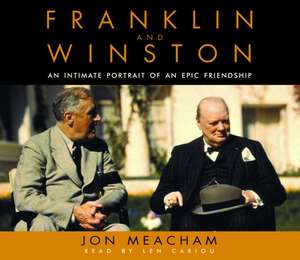


![The Civil War Boxed Set [With American Homer]](https://i0.books-express.ro/bt/9780679643708/the-civil-war-boxed-set-with-american-homer.jpg)
